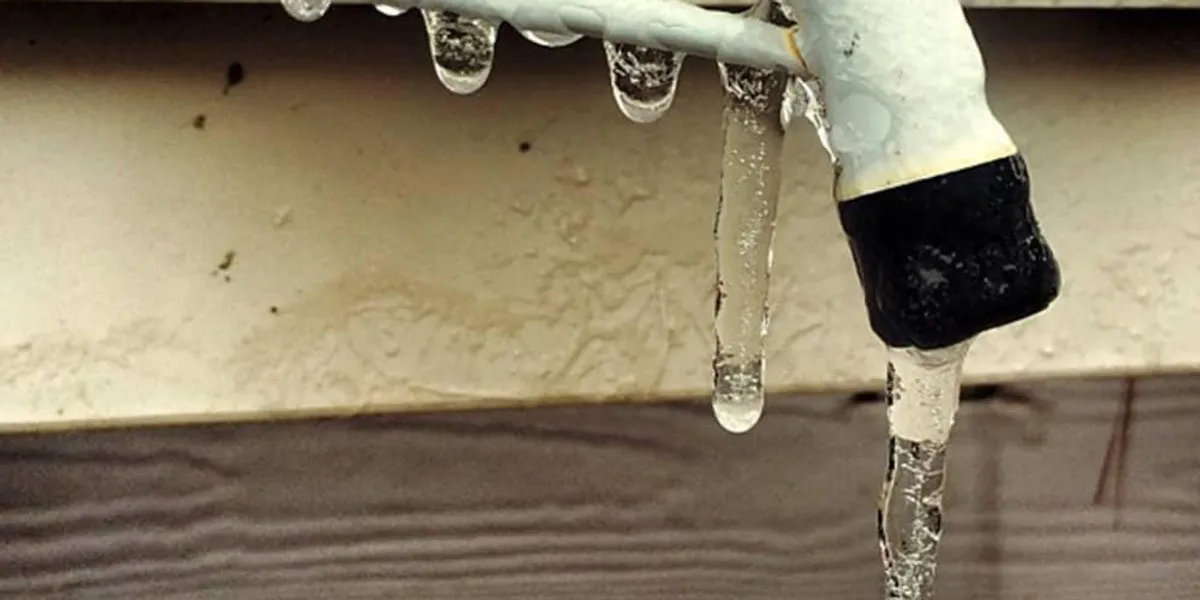Shielding Pipes from Cold Weather Damage: Key Approaches
Shielding Pipes from Cold Weather Damage: Key Approaches
Blog Article
Just how do you feel in regards to Helpful Tips to Prevent Frozen Pipes this Winter?

Cold weather can ruin your plumbing, particularly by freezing pipelines. Below's how to stop it from happening and what to do if it does.
Intro
As temperatures decrease, the danger of frozen pipes rises, potentially bring about expensive repair services and water damage. Comprehending just how to avoid icy pipes is critical for house owners in chilly environments.
Understanding Icy Pipelines
What triggers pipes to freeze?
Pipelines ice up when exposed to temperatures listed below 32 ° F (0 ° C) for expanded periods. As water inside the pipes freezes, it increases, taxing the pipeline wall surfaces and possibly causing them to break.
Threats and damages
Frozen pipes can cause supply of water interruptions, residential or commercial property damage, and expensive repair services. Burst pipelines can flood homes and create extensive structural damages.
Indications of Frozen Pipeline
Determining icy pipelines early can prevent them from breaking.
Exactly how to identify frozen pipelines
Seek reduced water circulation from faucets, uncommon odors or noises from pipes, and noticeable frost on exposed pipelines.
Prevention Tips
Protecting at risk pipes
Cover pipelines in insulation sleeves or make use of warm tape to protect them from freezing temperature levels. Focus on pipelines in unheated or exterior areas of the home.
Home heating techniques
Keep indoor rooms properly heated, particularly areas with plumbing. Open cabinet doors to enable warm air to distribute around pipes under sinks.
Protecting Exterior Plumbing
Garden hose pipes and exterior faucets
Detach and drain pipes yard hose pipes prior to winter season. Mount frost-proof faucets or cover outdoor taps with shielded caps.
What to Do If Your Pipelines Freeze
Immediate actions to take
If you believe icy pipes, maintain faucets available to soothe stress as the ice thaws. Utilize a hairdryer or towels taken in warm water to thaw pipelines gradually.
Long-Term Solutions
Architectural modifications
Think about rerouting pipes away from outside walls or unheated areas. Add extra insulation to attics, cellars, and crawl spaces.
Updating insulation
Purchase top notch insulation for pipes, attics, and walls. Correct insulation assists preserve regular temperatures and decreases the risk of icy pipelines.
Conclusion
Stopping frozen pipes calls for positive actions and fast responses. By comprehending the reasons, indicators, and preventive measures, homeowners can secure their pipes throughout winter.
Helpful Tips to Prevent Frozen Pipes this Winter
UNDERSTANDING THE BASICS: WHY PIPES FREEZE AND WHY IT’S A PROBLEM
Water freezing inside pipes is common during the winter months, but understanding why pipes freeze, and the potential problems it can cause is crucial in preventing such incidents. This section will delve into the basics of why pipes freeze and the associated problems that may arise.
THE SCIENCE BEHIND FROZEN PIPES
When water reaches freezing temperatures, it undergoes a physical transformation and solidifies into ice. This expansion of water as it freezes is the primary reason pipes can burst. As the water inside the pipe freezes, it expands, creating immense pressure on the walls. If the pressure becomes too great, the pipe can crack or rupture, leading to leaks and water damage.
FACTORS THAT CONTRIBUTE TO PIPE FREEZING
Low Temperatures: Extremely cold weather, especially below freezing, increases the risk of pipes freezing. Uninsulated or Poorly Insulated Pipes: Pipes located in unheated areas, such as basements, crawl spaces, or attics, are more prone to freezing. Insufficient insulation or lack of insulation altogether exacerbates the problem. Exterior Wall Exposure: Pipes running along exterior walls are susceptible to freezing as they encounter colder temperatures outside. Lack of Heating or Temperature Regulation: Inadequate heating or inconsistent temperature control in your home can contribute to frozen pipes. PROBLEMS CAUSED BY FROZEN PIPES
- Pipe Bursting: As mentioned earlier, the expansion of water as it freezes can cause pipes to burst, resulting in significant water damage.
- Water Damage: When pipes burst, it can lead to flooding and water damage to your property, including walls, ceilings, flooring, and personal belongings.
- Structural Damage: Prolonged exposure to water from burst pipes can compromise the structural integrity of your home, leading to costly repairs.
- Mold and Mildew Growth: Excess moisture from water damage can create a favorable environment for mold and mildew growth, posing health risks to occupants.
- Disrupted Water Supply: Frozen pipes can also result in a complete or partial loss of water supply until the issue is resolved.
WHY CERTAIN PIPES ARE MORE PRONE TO FREEZING
- Location: Pipes located in unheated or poorly insulated areas, such as basements, crawl spaces, attics, or exterior walls, are at higher risk of freezing.
- Exterior Pipes: Outdoor pipes, such as those used for irrigation or exposed plumbing, are particularly vulnerable to freezing as they are directly exposed to the elements.
- Supply Lines: Pipes that carry water from the main water supply into your home, including the main water line, are critical to protect as freezing in these lines can affect your entire plumbing system.
- Underground Pipes: Pipes buried underground, such as those connected to sprinkler systems or outdoor faucets, can be susceptible to freezing if not properly insulated.
https://busybusy.com/blog/helpful-tips-to-prevent-frozen-pipes-this-winter/

I ran across that write up about Winter Plumbing Precautions: Preventing Frozen Pipes while doing a search on the web. Appreciated our posting? Please quickly share it. Help others find it. Thanks a lot for being here. Revisit us soon.
Call Today Report this page